Greed Kills World Cup Campaigns
Greed Kills World Cup Campaigns
Since England’s 2003 WC victory, it has been 20 years of Southern Hemisphere rule, with the All Blacks and Springboks taking the four tournaments since.

Since England’s 2003 World Cup victory, it has been 20 years of the Southern Hemisphere ruling at the Rugby World Cup, with the All Blacks and Springboks taking the four tournaments since.
Despite being on different seasonal calendars, there is one undeniable difference between how the two hemispheres approach the game’s pinnacle event.
One side of the world plays far less rugby, and the other plays far more before a ball is even kicked in pool play.
The Six Nations teams just wrapped up the annual competition where they have each played five tests in 2023. With the world’s top two teams Ireland and France in the competition, the intensity has been high.
On returning to club land, the players will work through their respective Top 14, Premiership and URC seasons and complete European Cup competitions by late May.
But it is in the summer period where the nations of the Northern Hemisphere really harm their World Cup prospects.
Faced with the loss from the usual November international period, where they would usually rake in revenue from packed stadiums, the unions schedule full-blown test matches in August to fill the coffers.
England played Wales twice, Ireland and Italy met in the summer of 2019. Wales played England twice and Ireland twice – four games against two of the strongest in Europe.
These were labeled as ‘warm-up’ fixtures, but presented more like test matches, with near full-strength line ups. That meant they played another four test matches on top of the five completed already in the calendar year.
Wales, the Grand Slam winner in 2019, was not able to peak at the business end of that year’s Rugby World Cup as a result. The injury toll was immense by the time they reached the semifinal against South Africa.
Gareth Anscombe did his ACL in one of the summer warm-ups against England and didn’t make it on the plane to Japan.
No. 8 Taulupe Faletau didn’t make it either, after a training run injury before the event.
Josh Navidi was sidelined after the quarterfinal win over France with a hamstring tear. Liam Williams was scratched before the semifinal, while George North suffered a leg injury right before halftime. Midfielders Jonathan Davies and Hadleigh Parkes were under injury clouds to even play.
Injuries are expected, of course, but here, many key players on the squad were dropping like flies as they entered their 15th test match of the year.
Had they made the World Cup final for a 16th test, they would have been cannon fodder, and we know this from the bronze final, where the All Blacks wiped the floor with them.
Wales put up a tremendous campaign and valiant effort, but undeniably was a shell of the side that conquered all in the Six Nations that February.
They may have won the William Webb Ellis trophy with smarter player management, given they still pushed South Africa to the brink in the 19-16 semifinal loss with a walking wounded squad.
They did not have the playing resources available when they needed them most to fulfil their potential.
Scotland and Ireland also floundered in pool play, both suffering shock losses to Japan. Neither team was playing very well, while Japan hit the ground running, having timed their approach perfectly.
Japan threw conventional wisdom out of the window for their World Cup preparations by pulling all their players out of Super Rugby for the entire season, leaving the Sunwolves without any Japanese internationals.
A shadow World Cup team played a handful of Super Rugby ‘B’ squads instead, even playing total amateurs out of club rugby.
After that, Japan played a grand total of four tests before that World Cup – three in the Pacific Nations Cup against Tonga, Fiji and USA and one warm-up against the Springboks.
That preparation was enough to stun Ireland 19-12 in pool play. Ireland was playing its 11th test of the year, and many players were from a Leinster squad that had played a European Cup final and a Pro14 final earlier that year.
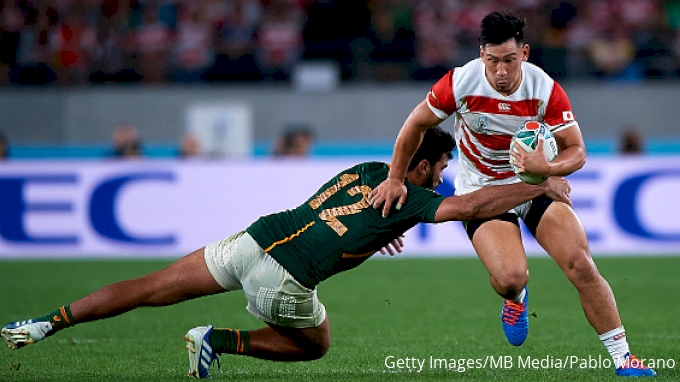
The amount of rugby Japan’s players had been put through was minuscule compared to their Irish opponents. The result suggests playing far less in a World Cup year, not more, worked in the Brave Blossoms favor.
European players have a two-month summer break over June and July, but when you consider the actual playing load and demands over the trailing 12 months into a World Cup, it still vastly outweighs those in the south, even with the break.
There is a solid argument that greed killed the Northern Hemisphere nations in 2019, as they ran their players into the ground before they were needed to peak.
Even England, which maintained a rather healthy squad without losing key players, just couldn’t match the intensity of South Africa in the final game, having emptied the tank to stun the All Blacks.
Yet the Southern Hemisphere teams take the complete opposite approach when it comes to the lead-in to the tournament.
As has been the case for several years, the resting protocols already are in place for the All Blacks during Super Rugby Pacific, who will be forced to sit out games.
When the nations of the Southern Hemisphere get together for the Rugby Championship this July, they will play a reduced version with less travel and fewer games.
They will play three in-competition tests, instead of the usual six.
The All Blacks and Wallabies will play one extra test to decide the Bledisloe Cup, while South Africa and Argentina will duke it out again for four tests in total.
New Zealand, Argentina and Australia have one extra warm-up test in August, while South Africa has two.
The Southern Hemisphere nations will begin pool play with just five tests under their belts, while South Africa will have six.
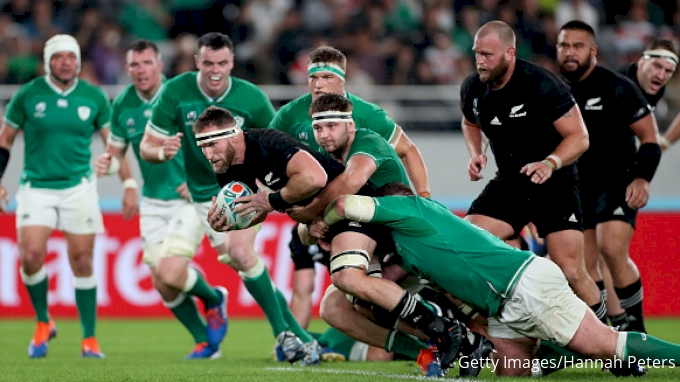
Ireland and France are the two best teams in the world and hold the best chances to end the Northern Hemisphere’s drought.
There is absolutely no logic to players like Johnny Sexton, Josh van der Flier, Antoine Dupont, and Romain Ntamack playing warm-up tests in the summer.
For Sexton, particularly, even playing for Leinster this year is questionable. He is so critical to Ireland’s campaign that he needs to be preserved at all costs. This opportunity is too valuable to squander.
Irish Rugby doesn’t need him playing another Champions Cup final in May, they need him playing a World Cup final in November.
Japan showed the way. They don’t need to play.
Related Content
 Kansas City Chiefs Coach Andy Reid Reveals Plans For Louis Rees-Zammit
Kansas City Chiefs Coach Andy Reid Reveals Plans For Louis Rees-ZammitApr 17, 2024
 Louis Rees-Zammit Discusses Decision To Join Kansas City Chiefs
Louis Rees-Zammit Discusses Decision To Join Kansas City ChiefsApr 9, 2024
 Report: Louis Rees-Zammit to Sign With Super Bowl Champ Kansas City Chiefs
Report: Louis Rees-Zammit to Sign With Super Bowl Champ Kansas City ChiefsMar 27, 2024
 Six Breakthrough Guinness Six Nations Stars To Follow In The BKT URC
Six Breakthrough Guinness Six Nations Stars To Follow In The BKT URCMar 20, 2024
 Guinness Six Nations: Five Key Takeaways From The 2024 Championship
Guinness Six Nations: Five Key Takeaways From The 2024 ChampionshipMar 18, 2024
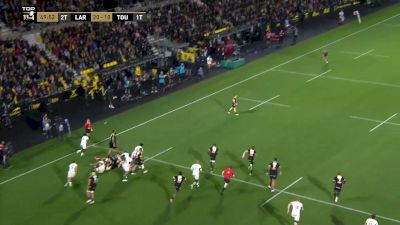 Replay: Stade Rochelais vs RC Toulonnais | Apr 28 @ 7 PM
Replay: Stade Rochelais vs RC Toulonnais | Apr 28 @ 7 PMApr 28, 2024
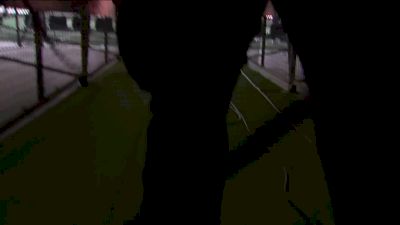 Replay: Oyonnax Rugby vs Castres Olympique - 2024 Oyonnax vs Castres Olympique | Apr 27 @ 3 PM
Replay: Oyonnax Rugby vs Castres Olympique - 2024 Oyonnax vs Castres Olympique | Apr 27 @ 3 PMApr 27, 2024
 Replay: LOU Rugby vs Section Paloise - 2024 Lyon OU vs Section Paloise | Apr 27 @ 3 PM
Replay: LOU Rugby vs Section Paloise - 2024 Lyon OU vs Section Paloise | Apr 27 @ 3 PMApr 27, 2024
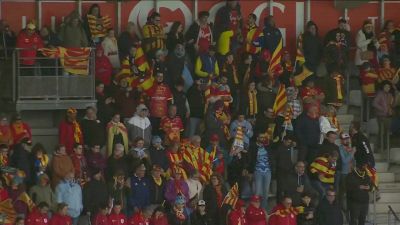 Replay: Montpellier HR vs Perpignan - 2024 MHR vs Perpignan | Apr 27 @ 3 PM
Replay: Montpellier HR vs Perpignan - 2024 MHR vs Perpignan | Apr 27 @ 3 PMApr 27, 2024